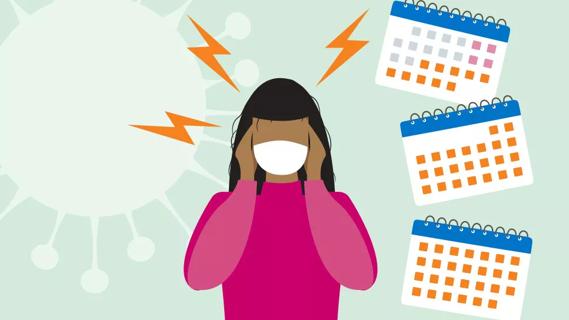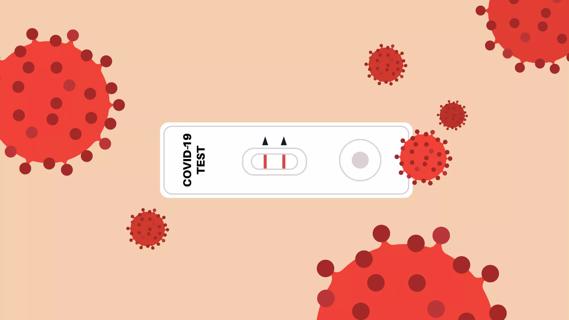COVID-19 should raise an alert, but within reason

This article was originally published on March 13, 2020. It was updated on April 4, 2020, to reflect new information about this rapidly evolving situation.
Advertisement
Cleveland Clinic is a non-profit academic medical center. Advertising on our site helps support our mission. We do not endorse non-Cleveland Clinic products or services. Policy
It seems like the entire world is talking about coronavirus (COVID-19). The internet is a blaze with articles and information, your mom is (still) frantically texting you and it’s all your co-workers are talking about in your new virtual meetings.
The uncertainty about a potentially life-threatening virus has created a buzz of public anxiety. So if you find yourself starting to get worked up and overwhelmed at the thought of COVID-19, you’re not alone.
“For everything that we don’t know about COVID-19, there’s a lot that we do know,” says infectious disease specialist Susan Rehm, MD. “Coronaviruses are a special class of cold viruses – and the good news here is that we know how to manage people with respiratory viruses.”
Dr. Rehm says that when it comes to easing fear and anxiety around COVID-19, take these two things into consideration:
“Healthcare providers and hospitals are working hard to respond to the spread of COVID-19,” says Dr. Rehm. “It’s important to understand that managing viral respiratory illnesses is not new in the medical community. We continuously prepare for outbreaks like this. Guidelines are in place and they’re updated as new information becomes available.”
Advertisement
And when it comes to yourself – you should know what to do to avoid getting sick because it’s the same as protecting yourself against influenza and lots of other infections. Wash your hands, use a tissue to cover your mouth and nose, don’t touch your face, avoid those who are sick, avoid crowds and stay home if you’re not feeling well.
The CDC also now recommends wearing a cloth face mask in public, especially in places where it’s hard to maintain at least 6 feet of distance between yourself and another person. Cloth face masks are being recommended because we now know individuals with COVID-19 could have mild or no symptoms, while still spreading the virus to others. The cloth face coverings recommended by the CDC are not surgical masks or N-95 respirators, which should be reserved for healthcare workers and first responders.
While this virus is unpredictable and the situation continues to evolve, focus on what you can control, says Dr. Rehm.
It’s only human to go through a range of emotions as we learn more about COVID-19.
You might experience:
Dr. Rehm urges caution, but within reason, regarding COVID-19. She offers a few tips to help you get a handle on the situation:
Advertisement
If you find that you just cannot seem to get a grip on your worry, seek help from a mental health specialist. They can help you identify triggers and give you tools to practice when you find your worry taking over.
Advertisement
Learn more about our editorial process.
Advertisement

The short answer: It’s complicated, but the basic care precautions still prevail, like washing your hands and isolating if you’re sick

They can feel like a typical headache or a migraine headache, but the pain can last for weeks to months

Any large social gathering — from a family birthday party to an indoor music concert — has the potential to spread serious infection

It’s important to connect with a healthcare provider, get quality sleep and balance your activities with your energy levels

Just like the flu, COVID-19 will continue to evolve every year

The duration varies, but symptoms can linger for a few days up to a couple weeks or more

Vaccination is best for prevention, but if you get sick with COVID-19, treatments are available

The virus lives best in humans, but it can last on hard surfaces, like doorknobs and railings

Type 2 diabetes isn’t inevitable with these dietary changes

Applying a hot or cold compress can help with pain